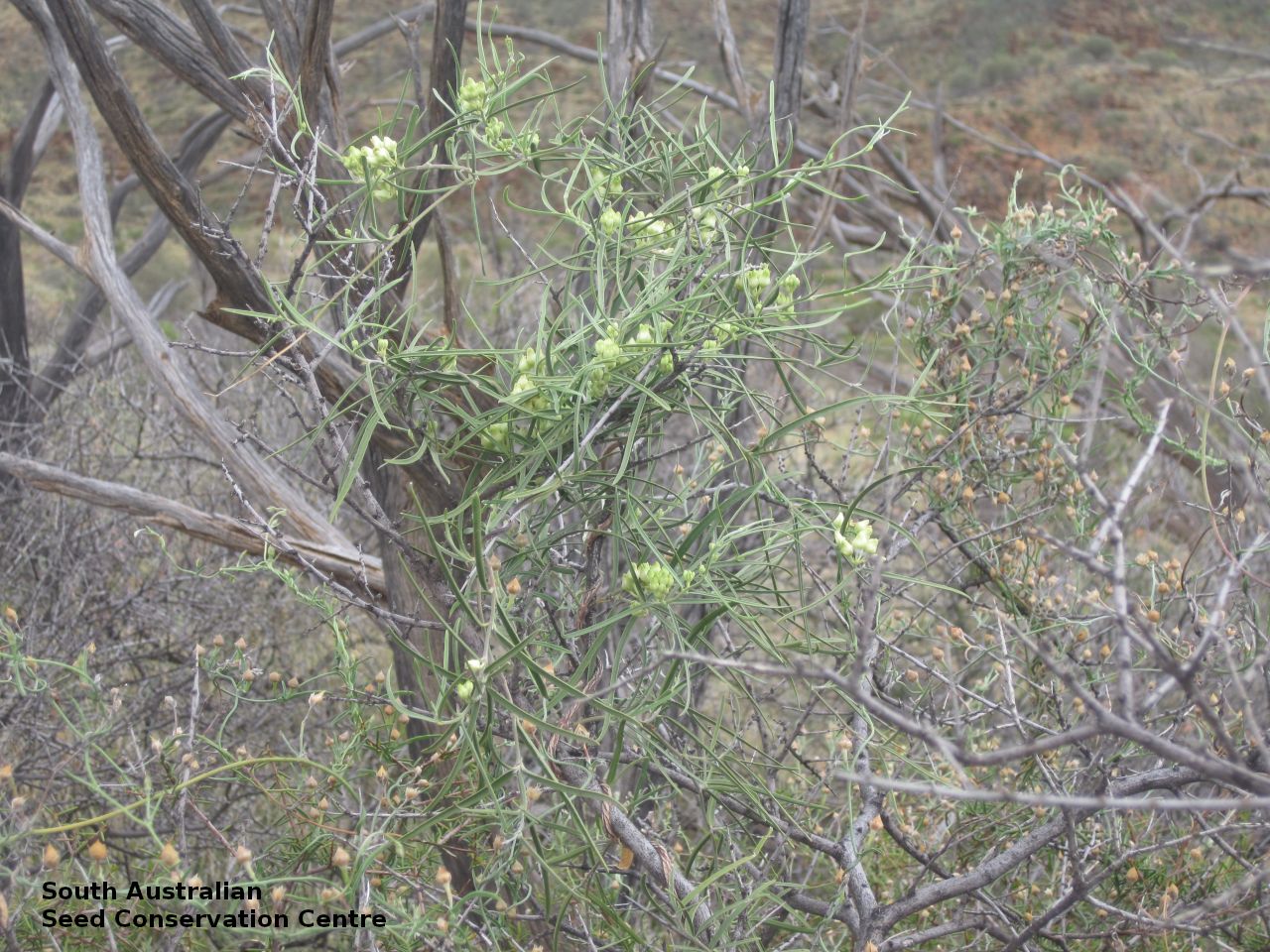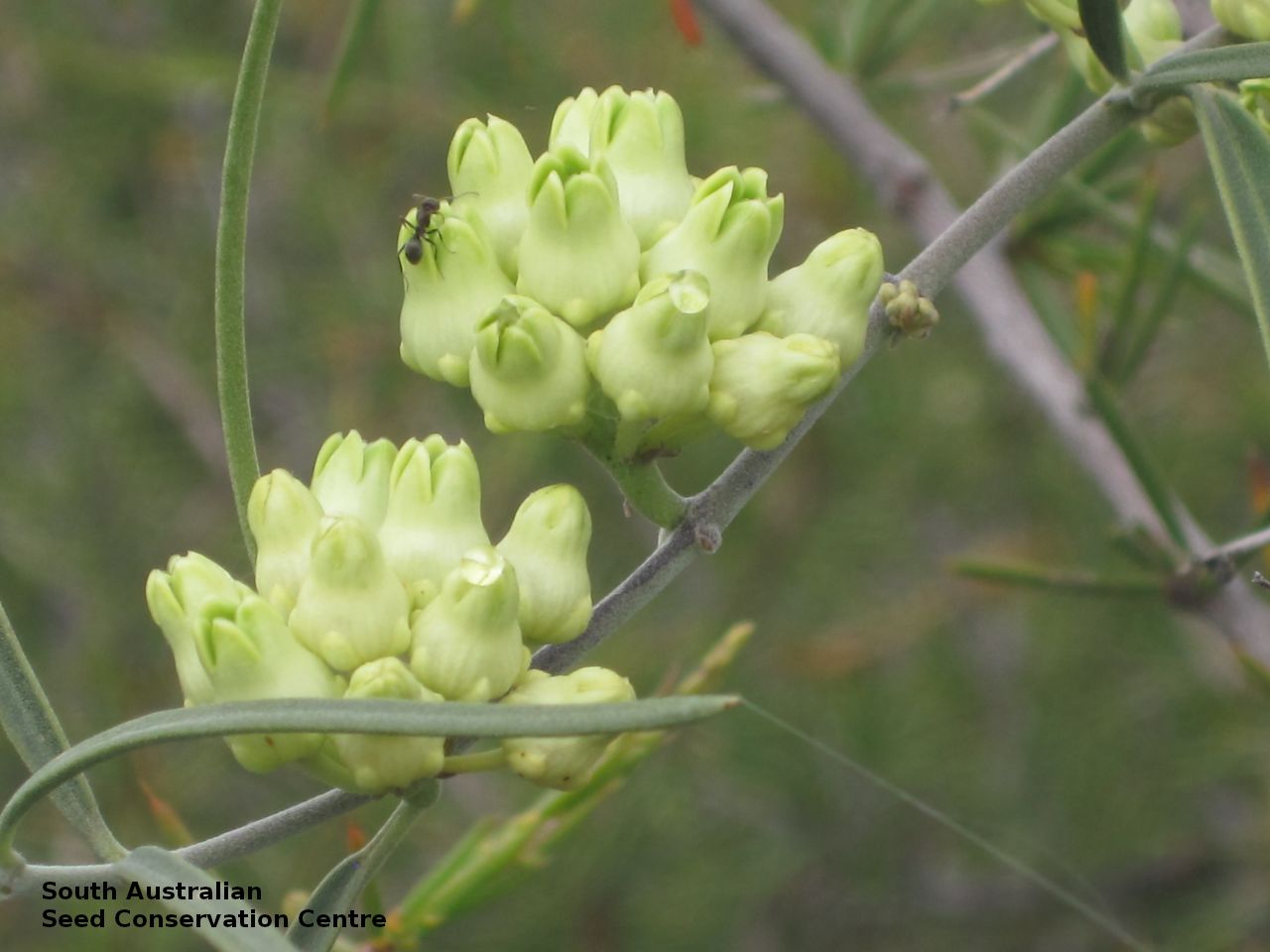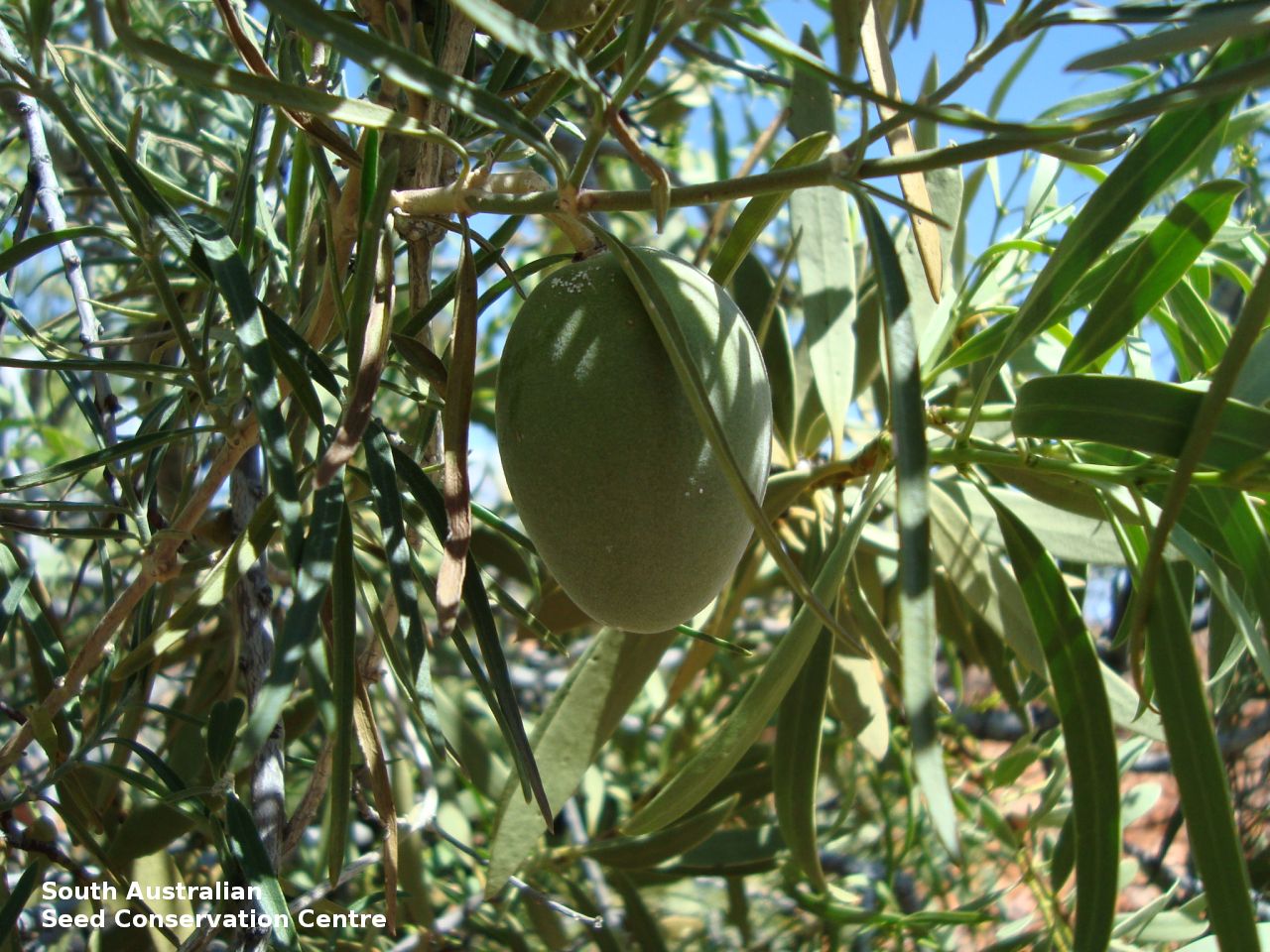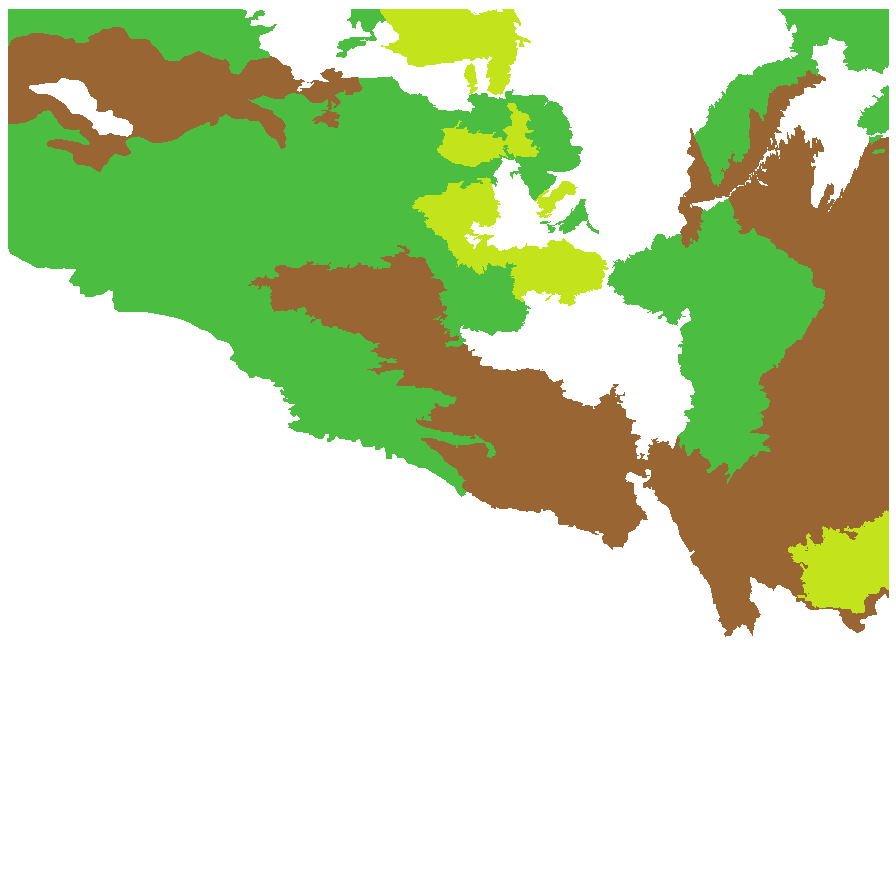Bush Banana
Display all 7 images







Regional Species Conservation Assessments per IBRA subregion.


Least concern
Near threatened
Rare
Vulnerable
Endangered
Critically endangered
Extinct
Data deficient
Adelaide
Arkaroola
Ceduna
Coober Pedy
Hawker
Innamincka
Marla
Marree
Mount Gambier
Oodnadatta
Renmark
Wudinna
Keith
Yunta
Display IBRA region text
| Broughton (FLB02) | Flinders Lofty Block | Rare (IUCN: RA d(ii)) [Edge of range] |
| Olary Spur (FLB03) | | Rare (IUCN: RA d(ii)) |
| Southern Flinders (FLB04) | | Rare (IUCN: RA d(ii)) |
| Northern Flinders (FLB05) | | Least Concern |
| Central Flinders (FLB06) | | Least Concern |
| South Olary Plain (MDD01) | Murray Darling Depression | Near Threatened |
| Braemer (MDD07) | | Rare (IUCN: RA d(ii)) |
| Murray Scroll Belt (RIV06) | Riverina | Rare (IUCN: RA d(i,ii)) (Probable Decline) |
| Myall Plains (GAW01) | Gawler | Rare (IUCN: RA d(ii)) |
| Gawler Volcanics (GAW02) | | Rare (IUCN: RA d(ii)) |
| Gawler Lakes (GAW03) | | Rare (IUCN: RA d(ii)) |
| Kingoonya (GAW05) | | Rare (IUCN: RA d(ii)) |
| Commonwealth Hill (GAW08) | | Rare (IUCN: RA d(ii)) |
| Maralinga (GVD03) | Great Victoria Desert | Least Concern |
| Kintore (GVD04) | | Rare (IUCN: RA d(i,ii)) |
| Tallaringa (GVD05) | | Data Deficient [no voucher] |
| Yellabinna (GVD06) | | Least Concern |
| Barrier Range (BHC01) | Broken Hill Complex | Rare (IUCN: RA d(ii)) |
| Barrier Range Outwash (BHC04) | | Rare (IUCN: RA d(ii)) |
| Bimbowrie (BHC05) | | Rare (IUCN: RA d(ii)) |
| Curnamona (BHC06) | | Rare (IUCN: RA d(ii)) |
| Strzelecki Desert (SSD05) | Simpson Strzelecki Dunefields | Rare (IUCN: RA d(i,ii)) [outlier] |
| Breakaways (STP01) | Stony Plains | Least Concern |
| Oodnadatta (STP02) | | Least Concern |
| Murnpeowie (STP03) | | Least Concern |
| Witjira (STP06) | | Near Threatened |
| Baltana (STP07) | | Near Threatened |
| Sturt Stony Desert (CHC02) | Channel Country | Least Concern |
| Mann-Musgrave Block (CER01) | Central Ranges | Least Concern |
| Everard Block (CER03) | | Rare (IUCN: RA d(ii)) |
| 5 of 6 subregions | Flinders Lofty Block | Least Concern , Rare |
| 2 of 6 subregions | Murray Darling Depression | Near Threatened , Rare |
| Murray Scroll Belt (RIV06) | Riverina | Rare (IUCN: RA d(i,ii)) (Probable Decline) |
| 5 of 8 subregions | Gawler | Rare |
| 4 of 4 subregions | Great Victoria Desert | Least Concern , Rare , Data Deficient |
| 4 of 4 subregions | Broken Hill Complex | Rare |
| Strzelecki Desert (SSD05) | Simpson Strzelecki Dunefields | Rare (IUCN: RA d(i,ii)) [outlier] |
| 5 of 7 subregions | Stony Plains | Least Concern , Near Threatened |
| Sturt Stony Desert (CHC02) | Channel Country | Least Concern |
| 2 of 3 subregions | Central Ranges | Least Concern , Rare |
Botanical art
Kath Alcock paintings: 3
Prior names
Marsdenia australis
Marsdenia leichhardtiana
Leichardtia australis
Etymology
Marsdenia named after William Marsden (1754-1836), an Irish-born British traveller, plant collector and Secretary of the Admiralty. Australis from Latin meaning southern; referring to species distribution in Australia.
Distribution and status
Found scattered in the northern part of South Australia. Also found in all mainland states. Native. Common in South Australia. Rare in Victoria. Common in the other states.
Herbarium regions: North Western, Lake Eyre, Nullarbor, Gairdner-Torrens, Flinders Ranges, Eastern, Eyre Peninsula, Murray
NRM regions: Alinytjara Wilurara, Eyre Peninsula, South Australian Arid Lands, South Australian Murray-Darling Basin
AVH map: SA distribution map (external link)
Plant description
Perennial climbing herb with twining stems containing a milky sap. Leaves linear to 100 mm long and 30 mm wide. Flowers greenish-yellow to 75 mm long and occur in branched clusters from the leaf axils in spring to summer. The flowers are followed by a yellow-brown seeds attached to tightly packed feathery hairs. Fruits are large green pear-shaped fruit, turning pale brown and splitting when matured and containing numerous seeds. Seeds are yellow ovoid seed to 7 mm long and 4 mm wide, with long dense pappus.
Seed collection and propagation
Collect seeds between December and April. Collect fruits that are maturing, fat, hard, turning pale brown and contain fluffy seeds. Place the fruit in a tray and leave to dry for at least two weeks until it split. Then shake the fruits to release the seeds. No further cleaning is required. Store the seeds with a desiccant such as dried silica beads or dry rice, in an air tight container in a cool and dry place.
| Location | No. of seeds
(weight grams) | Number
of plants | Date
collected | Collection number
Collection location | Date
stored | % Viability | Storage
temperature | | BGA | 4,200 (100.74 g) | 12 | 25-Sep-2014 | DJD3052
North Western | 1-Jan-2016 | 85% | -18°C |
Location: BGA — the seeds are stored at the Adelaide Botanic Gardens, MSB — the seeds are stored at the Millennium Seed Bank, Kew, England.
Number of plants: This is the number of plants from which the seeds were collected.
Collection location: The Herbarium of South Australia's region name.
% Viability: Percentage of filled healthy seeds determined by a cut test or x-ray.
Germination table:
Display








